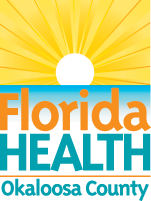It's a New Day in Public Health.
The Florida Department of Health works to protect, promote, and improve the health of all people in Florida through integrated state, county, and community efforts.
Going Smokefree Protects Your Health and the Environment
May 31, 2017
May 31, 2017
GOING SMOKEFREE PROTECTS YOUR HEALTH AND THE ENVIRONMENT
DOH-Okaloosa is Encouraging You to Help Reduce Cigarette Litter
Contact:
Ryan Mims
HealthyOkaloosaPIO@flhealth.gov
(850) 833-9240 ext. 2162
Cell: (850) 420-2198
Fort Walton Beach, Fla. – The Florida Department of Health’s Tobacco Free Florida program and Florida Department of Health in Okaloosa County (DOH-Okaloosa) are observing World No Tobacco Day by raising awareness about cigarette litter, which adds up to an estimated 1.69 billion pounds of litter worldwide per year.[i]
Each year, the public health community observes World No Tobacco Day on May 31 to focus on issues associated with tobacco. This year, DOH-Okaloosa is educating Okaloosa County residents about the importance of smokefree outdoor policies to not only protect the community’s health, but to also help protect the environment from toxic litter.
Members of Students Working Against Tobacco in Okaloosa County have completed two beach clean-ups for the 2016-2017 school year. SWAT members found that the majority of the litter along the beaches were cigarette butts.
Cigarettes that are discarded on roadways and sidewalks can end up in storm drains where they are carried as runoff to rivers and ultimately to the ocean and its beaches.[ii] In fact, cigarette butts are the single most collected item in beach cleanups worldwide.[iii] Fish, birds and other marine life can mistake the toxic cigarette butts for food.[iv],[v],[vi]
Discarded cigarette butts are non-biodegradable litter. Nearly all of cigarettes sold in the United States have filters made of cellulose acetate, a plastic product.[vii]
If your business or organization is interested in adopting a smokefree outdoor policy, contact DOH-Okaloosa at 850-833-9240, extension 2278.
About the Florida Department of Health
The department, nationally accredited by the Public Health Accreditation Board, works to protect, promote and improve the health of all people in Florida through integrated state, county and community efforts.
Follow us on Twitter at @HealthyFla and on Facebook. For more information about the Florida Department of Health please visit www.FloridaHealth.gov.
About Tobacco Free Florida
The department’s Tobacco Free Florida campaign is a statewide cessation and prevention campaign funded by Florida’s tobacco settlement fund. Since the program began in 2007, more than 159,000 Floridians have successfully quit using one of Tobacco Free Florida's free tools and services. There are now approximately 451,000 fewer adult smokers in Florida than there was 10 years ago, and the state has saved $17.7 billion in health care costs. To learn more about Tobacco Free Florida’s Quit Your Way services, visit www.tobaccofreeflorida.com or follow the campaign on Facebook at www.facebook.com/TobaccoFreeFlorida or on Twitter at www.twitter.com/tobaccofreefla.
###
[i] Novotny, Thomas E. et al. “Cigarettes Butts and the Case for an Environmental Policy on Hazardous Cigarette Waste.” International Journal of Environmental Research and Public Health 6.5 (2009): 1691–1705. PMC. Web. 15 May 2017.
[ii] Novotny, Thomas E. et al. “Cigarettes Butts and the Case for an Environmental Policy on Hazardous Cigarette Waste.” International Journal of Environmental Research and Public Health 6.5 (2009): 1691–1705. PMC. Web. 15 May 2017.
[iii] Ocean Conservancy, 30th Anniversary International Coastal Cleanup 2016 Annual Report,” Web. April 2017. <https://oceanconservancy.org/wp-content/uploads/2017/04/2016-data-release-1.pdf>
[iv] Stanley K, Stabenau E, Landry A. Debris ingestion by sea turtles along the Texas coast. In: Schroeder BA, editor. Eighth Annual Workshop on Sea Turtle Conservation and Biology. NOAA Technical Memorandum; Fort Fisher, NC, USA: 1988. pp. 119–121.
[v] Slaughter E, Gersberg RM, Watanabe K, et al Toxicity of cigarette butts, and their chemical components, to marine and freshwater fish Tobacco Control 2011;20:i25-i29.
[vi] Novotny TE, Hardin SN, Hovda LR, et al Tobacco and cigarette butt consumption in humans and animals Tobacco Control 2011;20:i17-i20.
[vii] Novotny, Thomas E. et al. “Cigarettes Butts and the Case for an Environmental Policy on Hazardous Cigarette Waste.” International Journal of Environmental Research and Public Health 6.5 (2009): 1691–1705. PMC. Web. 15 May 2017.





Connect with DOH